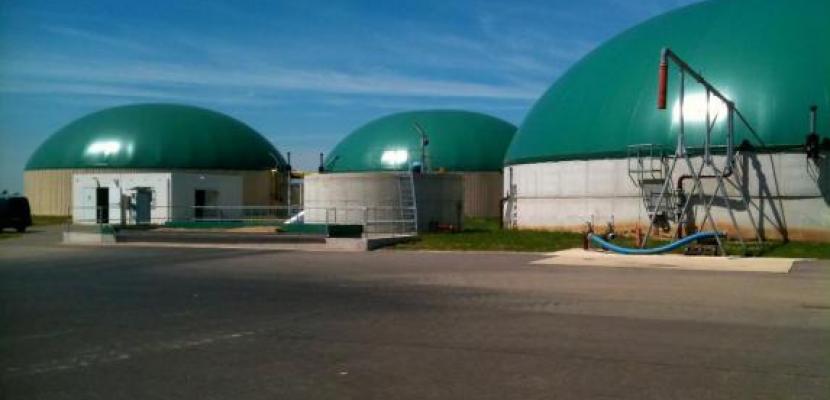Image

Farm carbon footprint reduction through fermentable waste valorization by anaerobic digestion
Published on 15 April 2019

France
This is the good practice's implementation level. It can be national, regional or local.
About this good practice
The region of Derval is home to many farms and industries. In order to address the problem of waste and livestock manure production, the SAS DERVAL AGRI’METHANE company set up an anaerobic digestion (AD) site in the municipality in 2016. This territorial and multi-partnership AD unit results from a complementary collaboration between SUEZ (waste treatment & disposal company), Chambre of Agriculture of Loire Atlantique, vocational school Saint Clair de Derval, LAD-SELA (economic and construction company), and 5 local agricultural holdings.
DERVAL AGRI' METHANE (DAM) is equipped with the following AD installations; a digester with an actual volume of 2492 m³ and a post-digester of the same volume. The storage volume of the biogas is 2,400 m ³ distributed over the digester and the post- digester.
AD unit recycles organic effluents from 5 partner farms as well as bio-waste collected by SUEZ: it makes possible to recycle these products while emitting a high quality digestate. The recovery of this fermentable waste results in production of thermal energy (hot water), which is used internally to run production equipments, delivers heating to the network for intermunicipal aquatic complex and Derval school. Finally, a phase separation allows the production of liquid and solid digestate: the latter are returned to the surrounding farms for spreading on fields. DAM then is an important local actor in bio-based circular economy.
DERVAL AGRI' METHANE (DAM) is equipped with the following AD installations; a digester with an actual volume of 2492 m³ and a post-digester of the same volume. The storage volume of the biogas is 2,400 m ³ distributed over the digester and the post- digester.
AD unit recycles organic effluents from 5 partner farms as well as bio-waste collected by SUEZ: it makes possible to recycle these products while emitting a high quality digestate. The recovery of this fermentable waste results in production of thermal energy (hot water), which is used internally to run production equipments, delivers heating to the network for intermunicipal aquatic complex and Derval school. Finally, a phase separation allows the production of liquid and solid digestate: the latter are returned to the surrounding farms for spreading on fields. DAM then is an important local actor in bio-based circular economy.
Resources needed
Total investment costs : 4,6 M€
Grants :
French Energy and Environment Agency (ADEME) : 565,000 €
Pays de la Loire Regional Council : 200,000 €
Grants :
French Energy and Environment Agency (ADEME) : 565,000 €
Pays de la Loire Regional Council : 200,000 €
Evidence of success
Annual treatment of 19,572 t of waste with biogas production volume of 1,602,791 m³ and electricity production of 3,200,000 kWhe. >50% of this waste is agricultural inputs from farms and inputs (co-products) provided by Suez. Local structures (15 agricultural holdings and 11 municipalities) benefit from thermal energy produced as well as from digestates: the spreading has just started (located within a radius of less than 25 km around the plot of the AD unit), and farmers are enthusiastic.
Potential for learning or transfer
This practice is an example successful partnership between local actors, bringing together farmers, local authorities, the State and the Chamber of Agriculture, and a school, in the context of fermentable waste recovery via AD on the DERVAL AGRI' METHANE site.
This system allows a real circularity of biomass, through the valorization of fermentable inputs in biogas, which supplies the site and the farms with energy, and fertilizer, which returns to the farms.
Benefits :
> Renewable energy production that replaces fossil energy
> Digestate that replaces synthetic fertilisers
> Reduction of costs for farmers
> Reduction of greenhouse gas emissions
> Creation of a new income for farmers
This system allows a real circularity of biomass, through the valorization of fermentable inputs in biogas, which supplies the site and the farms with energy, and fertilizer, which returns to the farms.
Benefits :
> Renewable energy production that replaces fossil energy
> Digestate that replaces synthetic fertilisers
> Reduction of costs for farmers
> Reduction of greenhouse gas emissions
> Creation of a new income for farmers
Good practice owner
You can contact the good practice owner below for more detailed information.
Organisation
SAS DERVAL AGRI’METHANE

France
Contact
Team Leader